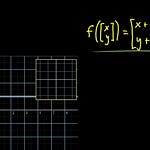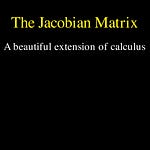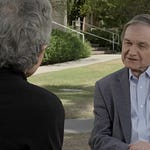Rethinking “Balanced View” in Scientific Controversies
Why Energy cannot be Created or Destroyed. Explained Simply!
33,361 views Jul 21, 2023
Energy cannot be created or destroyed in an isolated system, according to the rule of conservation of energy, a fundamental tenet of physics. It can only switch from one form to another instead. Numerous tests and observations have led to the same conclusion, which is supported by this principle: the total quantity of energy in a closed system is constant across time. The understanding of the behaviour of the universe is fundamental to the idea of energy conservation. Energy is a basic concept that can take on many different forms, including kinetic energy, which is related to motion, potential energy, which is related to position or configuration, thermal energy, which is related to temperature, chemical energy, and many others. Energy may change forms when transformations take place within a system, but the overall amount of energy does not. For instance, when a ball is tossed upward, its potential energy rises as it ascends, despite the fact that its kinetic energy reduces as it slows down. The ball's potential energy diminishes as it returns to the earth, but as it speeds, its kinetic energy grows. Understanding the behaviour of the world, from macroscopic occurrences to tiny particle interactions, depends critically on the conservation of energy. Numerous studies and observations have supported it, and it serves as the foundation for many scientific and engineering applications. The idea of energy conservation still serves as a cornerstone of modern physics despite advancements in our understanding of the cosmos. Have a great day Craig
Rethinking “Balanced View” in Scientific Controversies
2025年08月31日 00:53 (星期日)
Dear Prof. Yue Liu,
Thank you for your reply to my decision letter concerning manuscript D-25-00583. Your letter has been studied carefully. However, I cannot find a valid argument that would justify reversing the original “reject” decision.
You will appreciate that it is up to the editors of a journal to decide whether a paper will be suitable for their journal or not. Progress in Materials Science has a reputation for publishing only balanced review articles. I will refrain from entering a discussion on what constitute a “balanced” review. Let me only state the notion of a “correct theory” (which you are alluding to) is already extremely dubious: philosophy of science has shown that theories are always approximations to reality and can never be proven, but only disproven by conflicting experimental data. In that sense, the style of your reply reinforces my original decision.
I regret that I cannot give you a better response.
Best regards,
Eduard Arzt
Editor-in-Chief
Progress in Materials Science
Energy Can’t Be Created or Destroyed! Why?
2025年08月31日 02:02 (星期日)
Dear Prof. Arzt,
Thank you for your thoughtful reply. I do not intend to challenge your editorial decision but feel compelled to respond and clarify my scientific perspective.
Certain foundational scientific principles—such as conservation of energy, the second law of thermodynamics, classical electromagnetism, and the theoretical framework of magnetism—are fundamentally correct and universally accepted. Conversely, theories such as geocentrism, perpetual motion machines, and phlogiston are unequivocally wrong. Similarly, in our manuscripts, we have demonstrated that the impedance matching theory of microwave absorption is fundamentally flawed.
To date, no mainstream scientists have provided scientifically rigorous rebuttals that effectively counter our arguments. I respectfully invite you to review our comprehensive analysis published here:
Preprint: Yue Liu, Ying Liu, Michael G. B. Drew, Citation Issues in Wave Mechanics Theory of Microwave Absorption: A Comprehensive Analysis with Theoretical Foundations and Peer Review Challenges, arXiv:2508.06522v3 (2025)
DOI: 10.48550/arXiv.2508.06522.
Should you disagree with our conclusions, I would welcome an academic discussion to see which evidence withstands critical scrutiny.
The unwillingness of significant portions of the scientific community to engage with or rebut opposing arguments reveals a broader issue we describe as Cargo Cult Science. It is important to emphasize that academic rigor requires proper scientific argumentation, and the mere status of the impedance matching theory as a "mainstream" consensus does not alone constitute a valid scientific argument.
Thank you again for engaging in this discussion. I appreciate your consideration.
Sincerely,
Prof. Yue Liu










